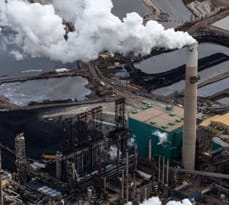 Dr Chris Hope, Reader in Policy Modelling at Cambridge Judge Business School, and School alumna Dr Aurélie Méjean, Research Fellow at CIRED (Centre International de Recherche sur l’Environnement et le Développement) in France, have been working together on research published in the journal Energy Policy.
Dr Chris Hope, Reader in Policy Modelling at Cambridge Judge Business School, and School alumna Dr Aurélie Méjean, Research Fellow at CIRED (Centre International de Recherche sur l’Environnement et le Développement) in France, have been working together on research published in the journal Energy Policy.
Entitled “Supplying synthetic crude oil from Canadian oil sands: a comparative study of the costs and CO2 emissions of mining and in-situ recovery”, the study quantifies the effect of carbon pricing on the economics of Canadian oil sands.
Canadian oil sands are used to produce synthetic crude oil, a substitute to conventional oil. Producing these resources leads to higher CO2 emissions per unit of energy produced than conventional oil, as they require more energy for extraction and upgrading. When near the surface, oil sands are mined. When at greater depth, they are recovered in-situ, with the injection of steam and solvents into the reservoir to produce bitumen. Bitumen is then upgraded into synthetic crude oil.
This new analysis shows that pricing CO2 at its social cost would have a large impact on the costs of synthetic crude oil from Canadian oil sands, adding more than 50 per cent to its cost in 2050 if it is mined (mean value), and more than doubling its cost in the case of in-situ production. The effect of carbon pricing is higher for in-situ production due to the high carbon intensity of the recovery methods.
The study uses Monte-Carlo techniques to reveal the impact of key parameter uncertainties on the costs of oil sands. The analysis quantifies the effects of learning, production constraints and carbon pricing on these costs.

